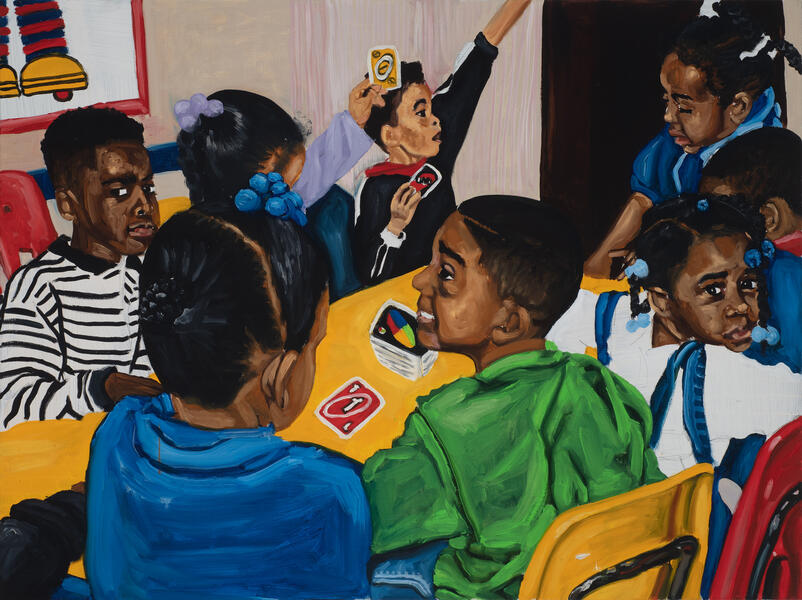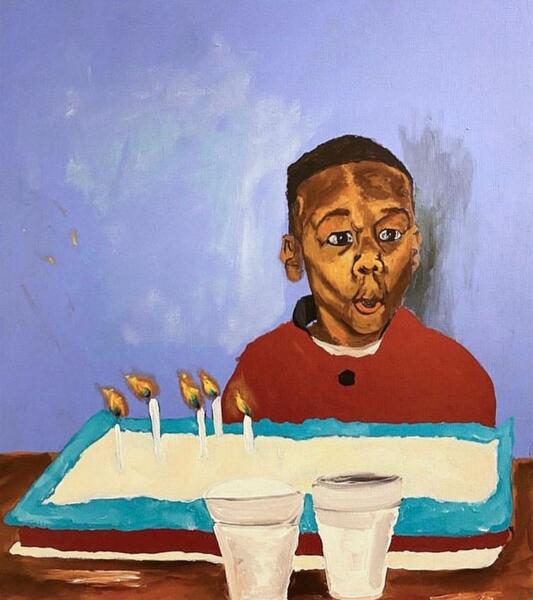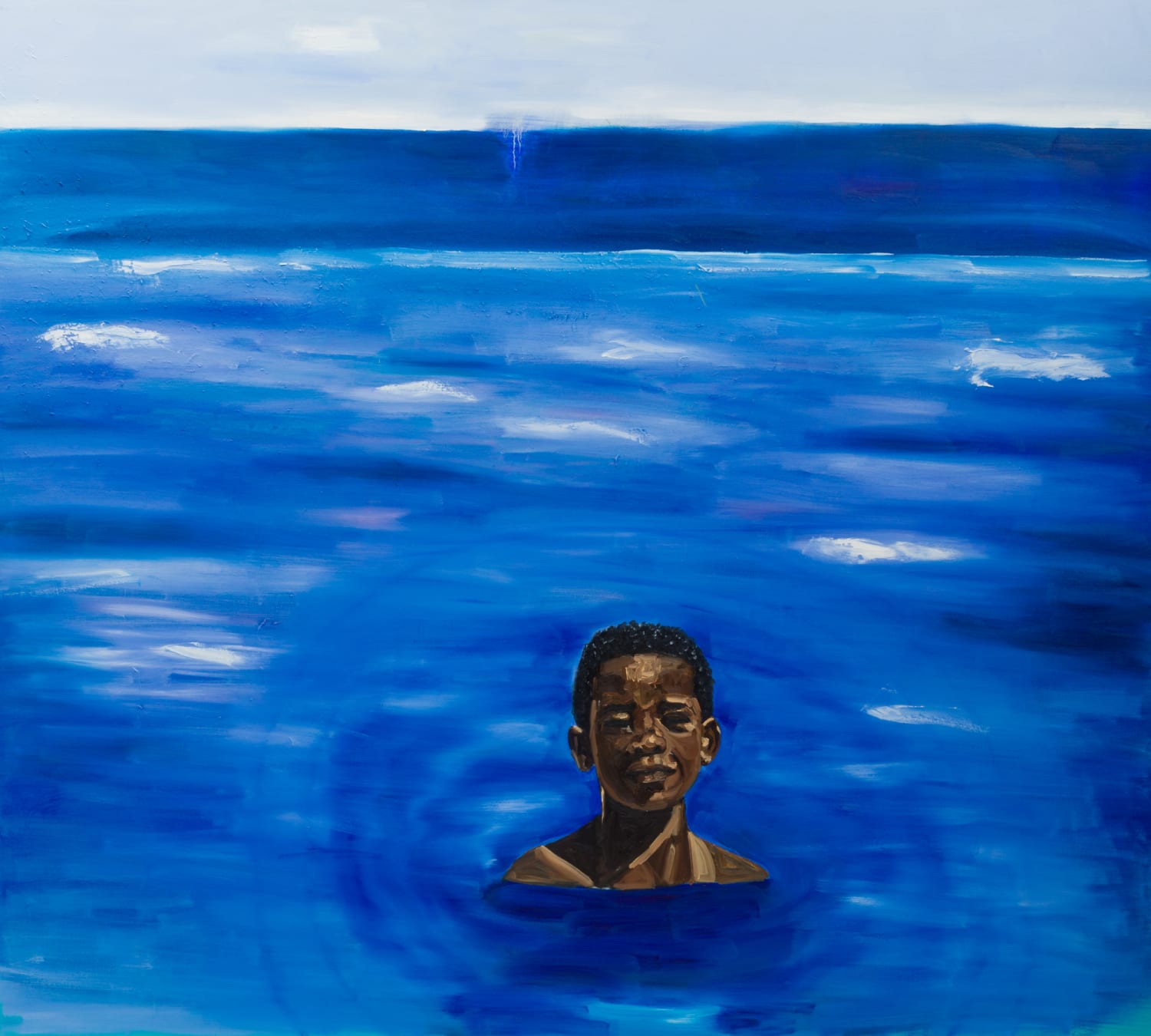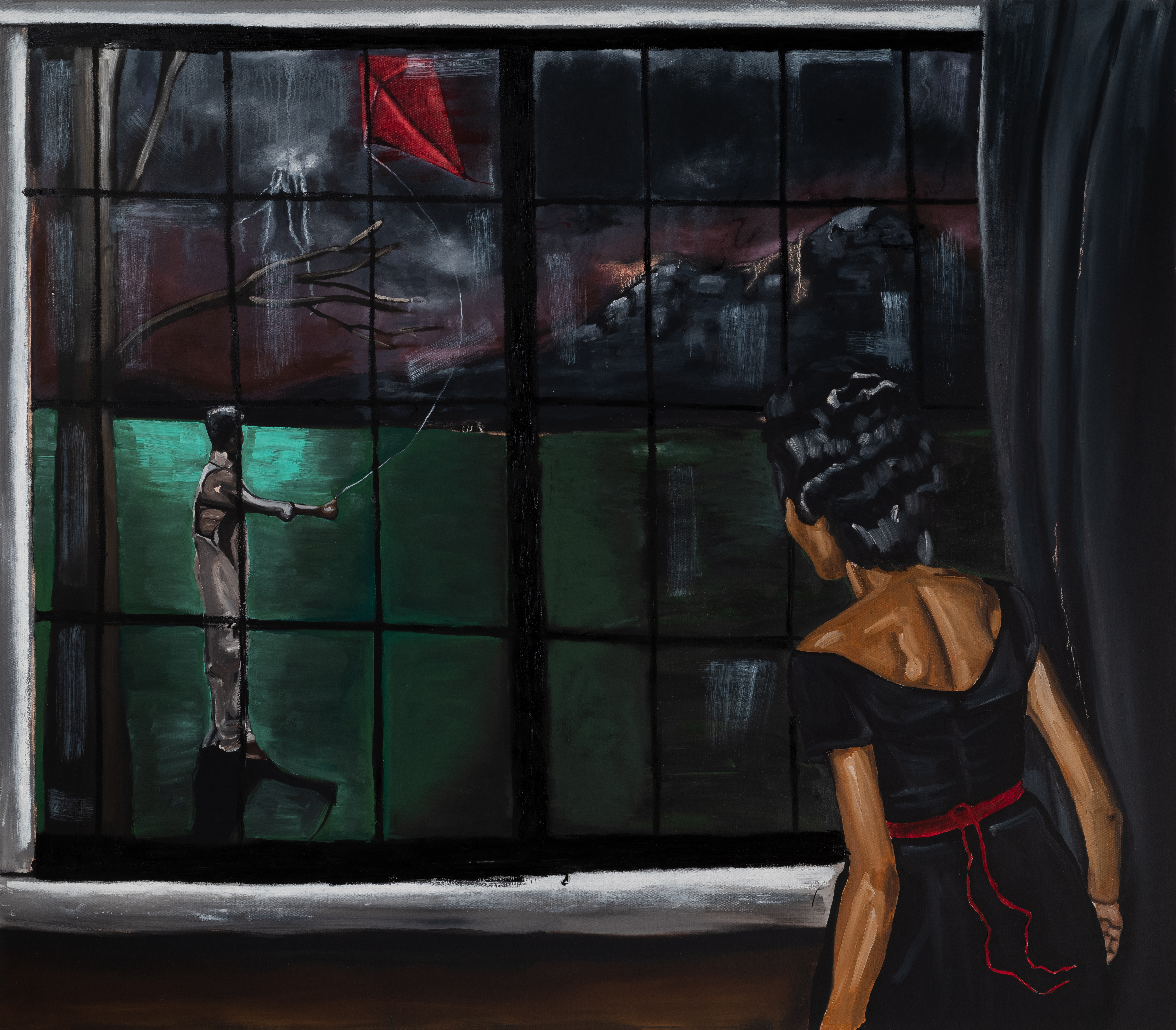About Jerrell
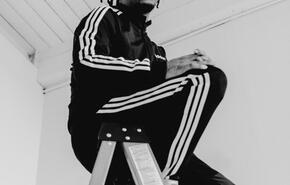
Jerrell Gibbs explores the complexities of life by investigating his personal experiences of living and growing up in America. His paintings are composites of childhood memories centered around American life and culture, spotlighting stories of the familiar that go unnoticed. Gibbs uses everyday settings as the framework to his paintings in order to highlight the innumerable similarities humanity shares despite social differences.
Gibbs is committed to creating paintings that are… more
Fearfully and Wonderfully Made
Galerie Myrtis is honored to present Fearfully and Wonderfully Made, a compelling new body of work by Jerrell Gibbs that challenges historically ingrained biases within the world of ballet. Through his evocative paintings, Gibbs interrogates the exclusionary ideals that have long shaped the art form, particularly the rigid standards of physicality that continue to limit access to dancers based on appearance rather than ability.
By centering Black ballet dancers in his compositions, Gibbs redefines the visual narrative of ballet, shifting the focus from Eurocentric ideals of form to the undeniable brilliance, technique, and resilience of these performers. He highlights the persistent body shaming and prejudice in the field, which continue in many institutions.
Gibbs’ work finds kinship with the artistic legacy of Edgar Degas, whose groundbreaking sculpture Little Dancer Aged Fourteen once challenged 19th-century notions of beauty and class. Just as Degas disrupted the status quo of his time, Gibbs offers a new perspective—one that insists on inclusion and recognition for dancers who have been historically overlooked.
In Fearfully and Wonderfully Made, Gibbs invites us to question ingrained aesthetic norms and imagine a ballet world where excellence is measured by artistry and technique rather than outdated, exclusionary ideals. Through this body of work, he fosters a necessary dialogue—one that reclaims space, celebrates Black dancers, and affirms that ballet belongs to all who dedicate themselves to its craft.
-
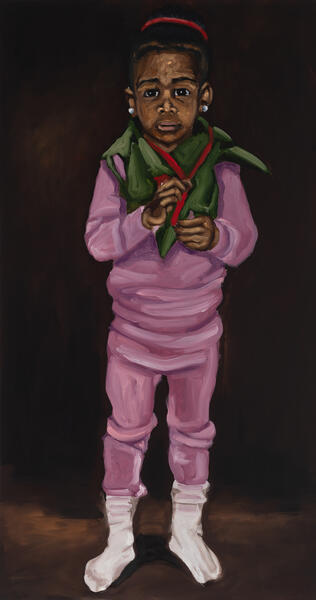 0 hours (Day 1)
0 hours (Day 1)0 hours (Day 1)
Oil on canvas
40 x 22 in
101.6 x 55.88 cm
2025
-
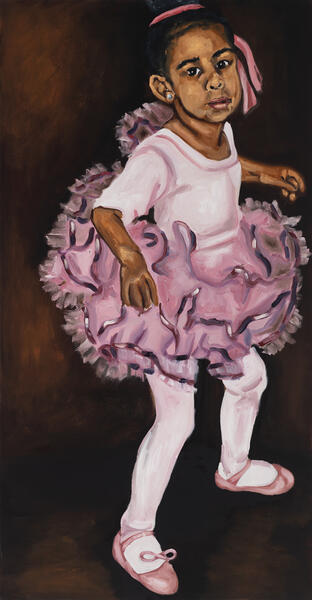 5k hours (Year 5)
5k hours (Year 5)Oil on canvas
40 x 22 in
101.6 x 55.88 cm
2025
-
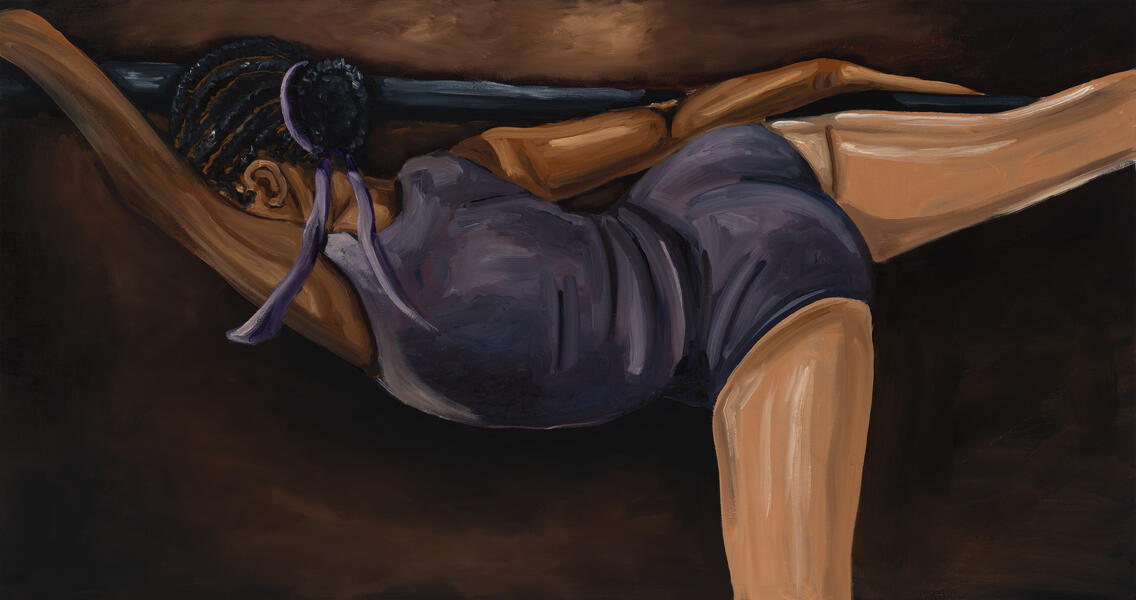 Preparation
PreparationOil on canvas
22 x 40 in
55.88 x 101.6 cm
2025
-
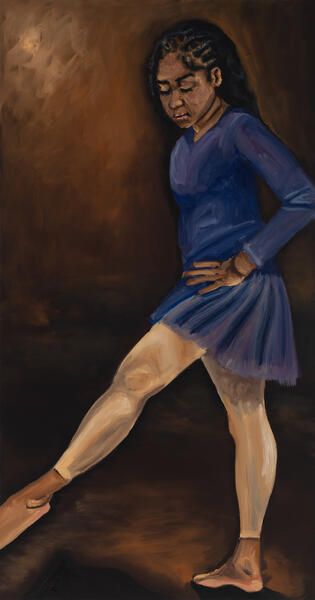 Repition
RepitionOil on canvas
40 x 22 in
101.6 x 55.88 cm
2025
-
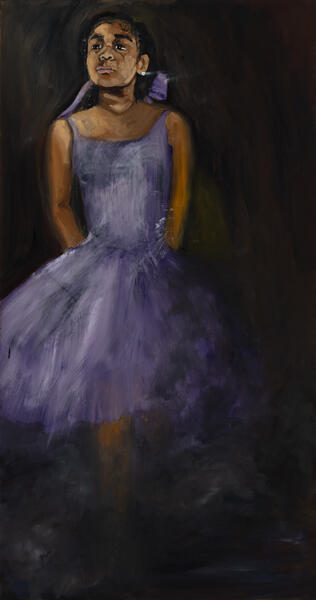 The little dancer aged fourteen
The little dancer aged fourteenOil on canvas
40 x 22 in
101.6 x 55.88 cm
2025
-
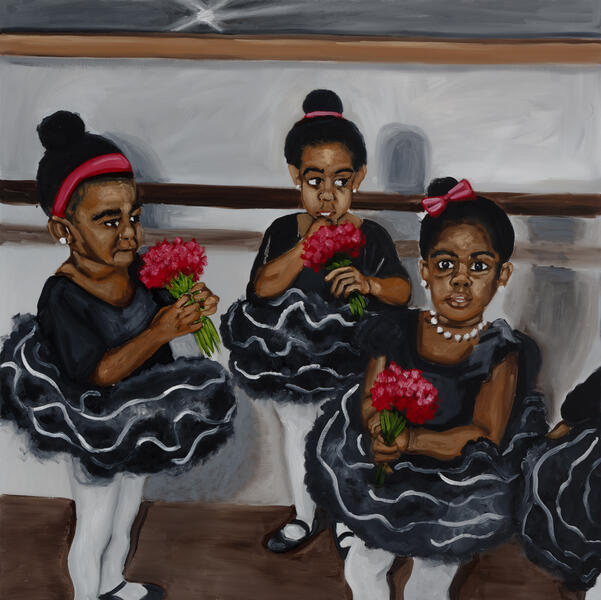 Fulfillment
FulfillmentOil on canvas
40 x 40 in
106.6 x 106.6 cm
2025
-
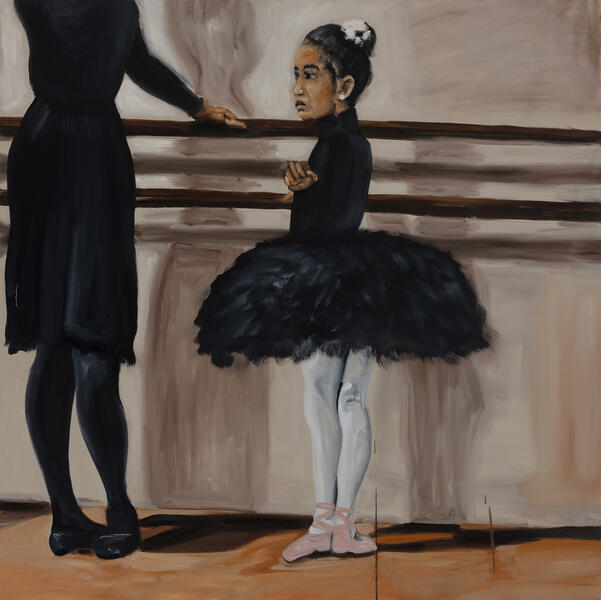 The lesson
The lessonOil on canvas
40 x 40 in
101.6 x 101.6 cm
2025
-
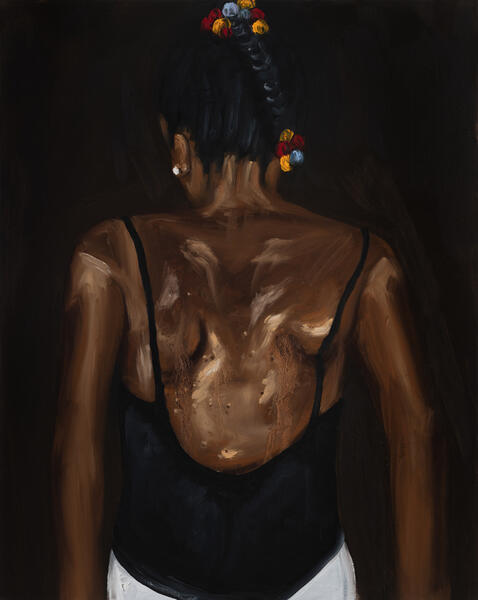 Perseverance
PerseveranceOil on canvas
30 x 24 in
76.2 x 60.96 cm
2025
-
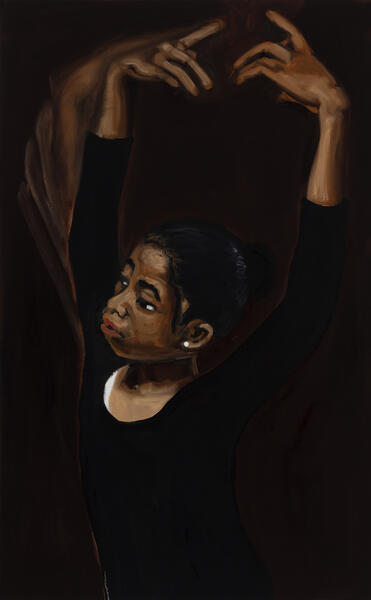 With grace
With graceOil on canvas
36 1/2 x 22 1/2 in
92.71 x 57.15 cm
2025
Salvador Series
-
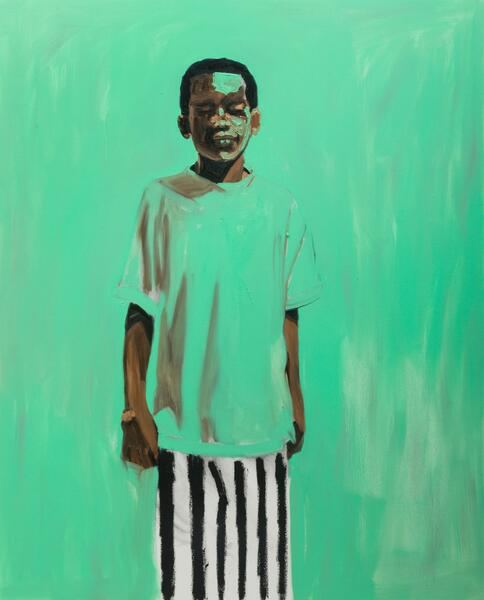 A Sharp
A SharpOil on canvas
60 x 48 in
152.4 x 121.92 cm
2021
-
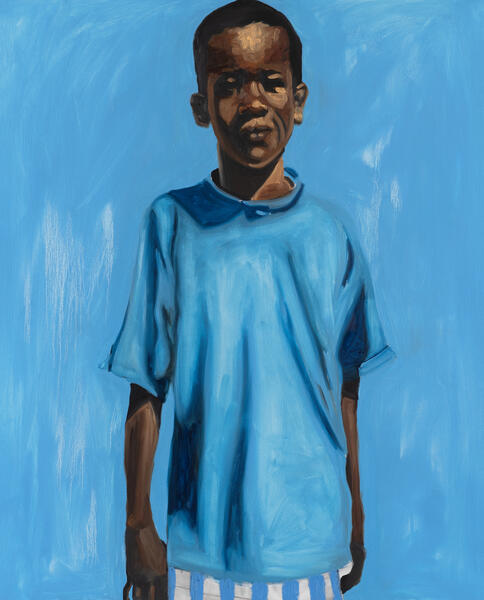 Salvador in kings blue
Salvador in kings blueOil on canvas
60 x 48 in
152.4 x 121.96 cm
2024
-
 C note
C noteOil on canvas
80 x 90 in
203.2 x 228.6 cm
2021
-
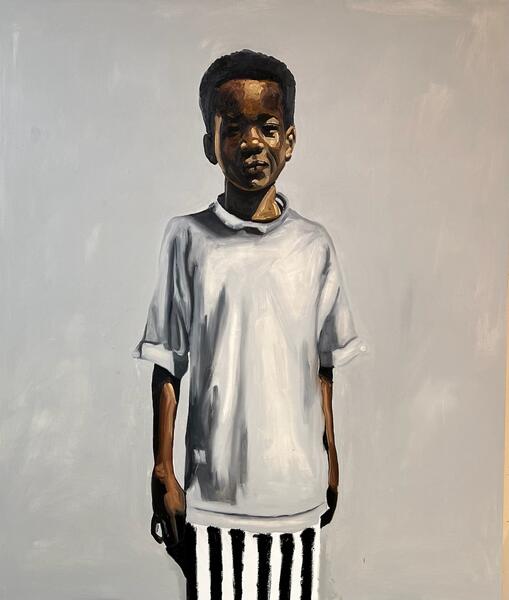 Salvador in grey
Salvador in greyOil on canvas
84 x 72 in
213.36 x 182.88 cm
2024
-
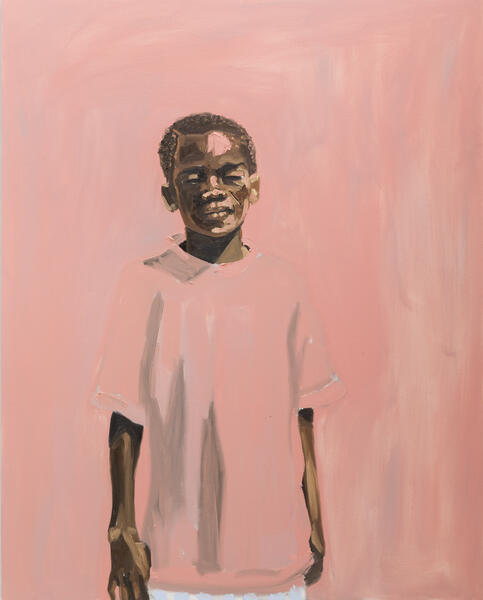 D sharp
D sharpOil on canvas
50 x 40 in
127 x 101.6 cm
2021
-
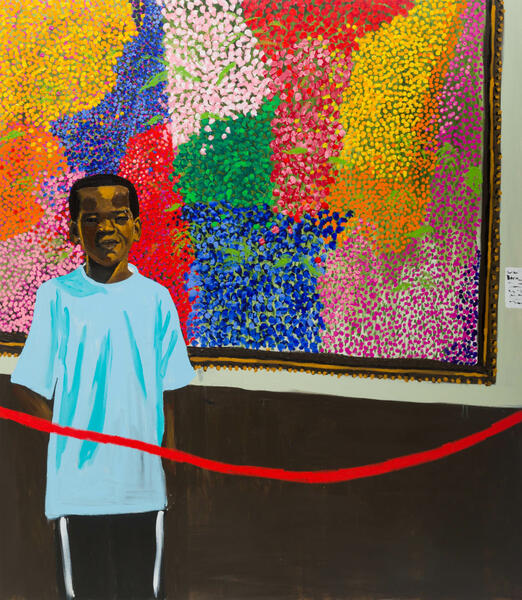 G note
G noteOil on canvas
60 x 50 in
152.4 x 127 cm
2021
-
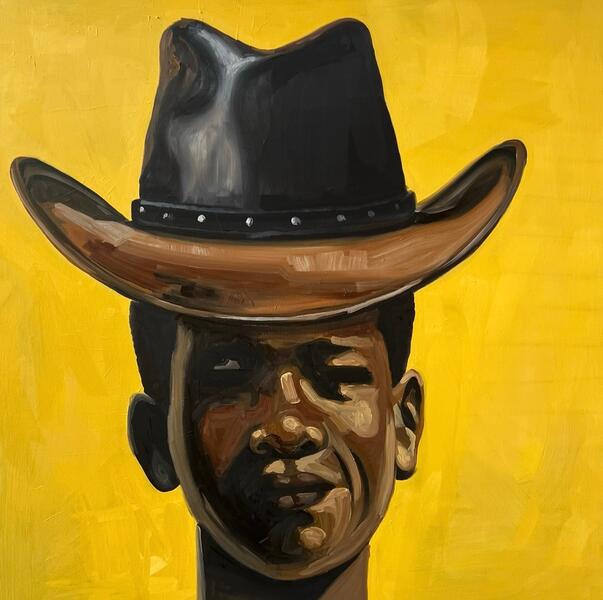 Salvador in cowboy hat
Salvador in cowboy hatOil on canvas
40 x 40 in
101.6 x 101.6 cm
2024
-
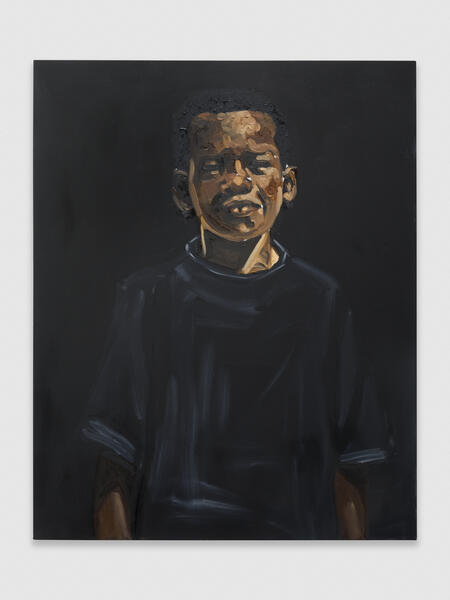 E note
E noteOil on canvas
60 x 50 in
152.4 x 127 cm
2021
Language of Tears
Jerrell Gibbs creates luminously rendered, expressionistic oil paintings that synthesize a wide range of art historical and cultural references to mine the elliptical contours of memory. His allegorical and autobiographical compositions explore themes of Black masculinity, fatherhood, legacy, and remembrance, complicating and subverting visual stereotypes and misrepresentations. Often working from archival family photographs, Gibbs creates tender, emotionally evocative vignettes that highlight moments of quiet joy and sorrow, rest, and mundane beauty while engaging deeply with the materiality of his process. The inspiration for the body of work in this exhibition came from the artist’s viewing of the 1977 Ralph Nelson film A Hero Ain’t Nothin’ but a Sandwich, which centers on the struggles of a young boy in South Central Los Angeles following the abandonment of his biological father. This film sparked a period of self-examination and painterly exploration for Gibbs, bringing to the surface his own experience of losing his father at a young age. For Gibbs, the canvas becomes a space within which he can parse the gaps and ruptures of personal memory to create works that provide portals into universal human emotional experiences. While the figures that populate Gibbs’ paintings are often drawn from personal life, he situates them within domestic interiors and fictive non-spaces that create cinematic moments of narrative ambiguity. Building up his surfaces in a process of accumulative brushstrokes, the artist imbues his scenes with a mixture of the familiar and the imaginative. Windows and mirrors frequently appear in his work, as both a metaphoric invocation of the variable experience of memory and a device to allow the artist to manipulate multidirectional light sources with painterly finesse. In My worst fear is...tragedy on news, 2024, a mirror’s reflection casts a familiar scene of family gathered on the couch in front of the television into a realm of slightly destabilizing distortion, suggesting the jarring impact of what might be unfolding before them in primetime. In this new body of work, Gibbs has begun experimenting with compositional disruptions that reinforce the psychological interiority of his figures. In Like father like son, 2024, a small canvas depicting the artist as a young child is affixed to a portrait of his father. Head bowed in profile as he listens to music on headphones, his beloved record collection surrounds him. This use of separate surfaces highlights the distance between the father who
is gone and the son who has remained. Yet the color relationships across the two canvases suggest that, for the artist, music–like painting– can function as a bridge or point of connection across time and loss. In Inheritance, 2024, Gibbs depicts his father as a young man new to fatherhood and filled with its attendant joys, holding his infant son. A black void eclipses the child’s face. The artist notes, “This void is my own experience of the moment, which I only experience as a photograph.” The painting becomes a way to both pay intimate tribute to his father’s visible joy and to grapple with, on a broader level, what it means to build an identity as a father and a man when the memory of those who came before you is incomplete. What happens when the dream falls apart, 2024, and Two peas in a pod, 2024, introduce new physical material into the artist’s oeuvre. Gibbs limns these figures with flattened appliques of imitation gold leaf, transforming contemporary family portraits into 21st century icons that build upon the rich art historical tradition of illuminated divinity. The artist’s choice of imitation gold leaf is significant, functioning as a metaphor for the resourcefulness with which his family and his community in Baltimore have repeatedly built and rebuilt their lives with what little they had and were given.
Words by Sarah Stengel
-
 My worst fear is one day that you come home from school and see your father face while hearing' bout tragedy on news
My worst fear is one day that you come home from school and see your father face while hearing' bout tragedy on newsOil on canvas
60 x 95 in
152.4 x 241.3 cm
2024
-
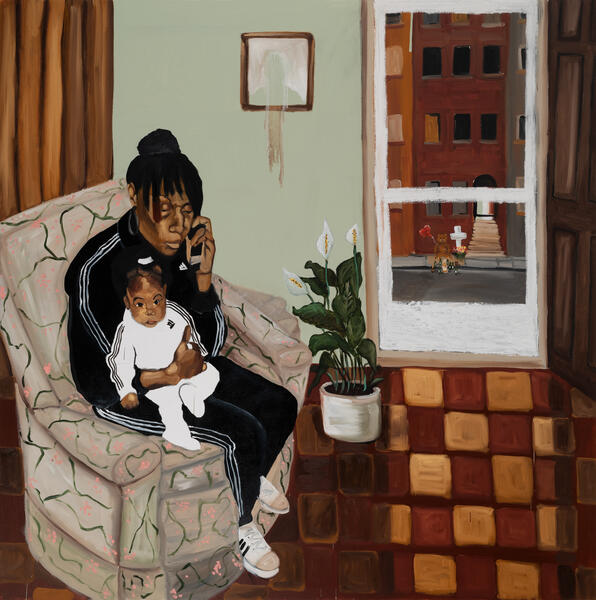 All we're left with are peace lilies, teddy bears, and a balloon
All we're left with are peace lilies, teddy bears, and a balloonOil, acrylic, oil stick on canvas
72 1/2 x 72 1/4 in
184.2 x 183.5 cm
2024
-
 Longing
LongingOil on canvas
68 x 72 in
172.7 x 182.9 cm
2024
-
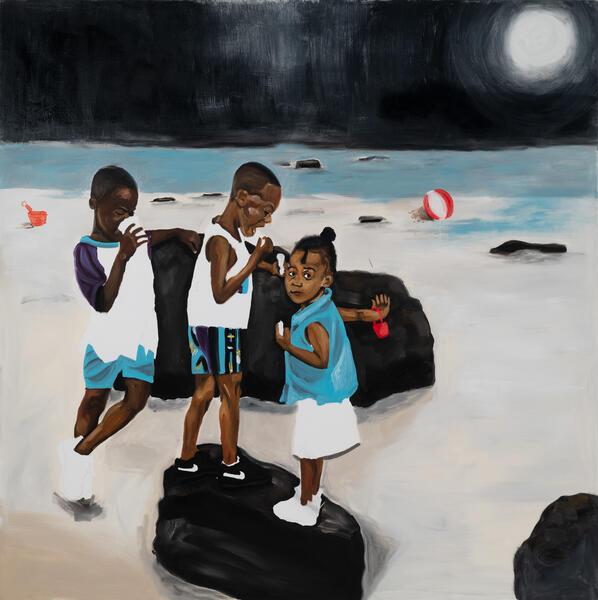 Jerry's kids
Jerry's kidsOil on canvas
70 1/8 x 70 1/8 in
178.11 x 178.11 cm
2024
-
 A hard head makes a soft behind
A hard head makes a soft behindOil, oil stick on canvas
80 1/4 x 70 in
203.7 x 177.8 cm
2024
-
 Pray for the mother that has to tell her son...
Pray for the mother that has to tell her son...Oil on canvas
40 1/8 x 36 in
101.9 x 91.4 cm
2024
-
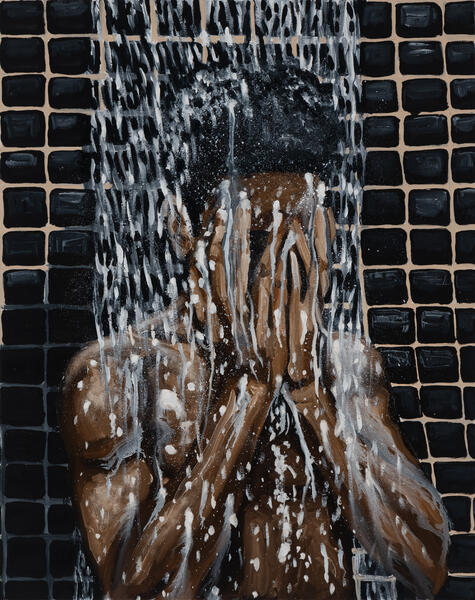 Can't let em' see me cry
Can't let em' see me cryOil on canvas
30 x 24 in
101.6 x 60.96 cm
2024
-
 Like father like son
Like father like sonOil on canvas
40 x 30 in
101.6 x 76.2 cm
2024
-
 What happens when the dream falls apart
What happens when the dream falls apartOil, acrylic, combination gold leaf on canvas
48 x 48 in
121.9 x 121.9 cm
2024

